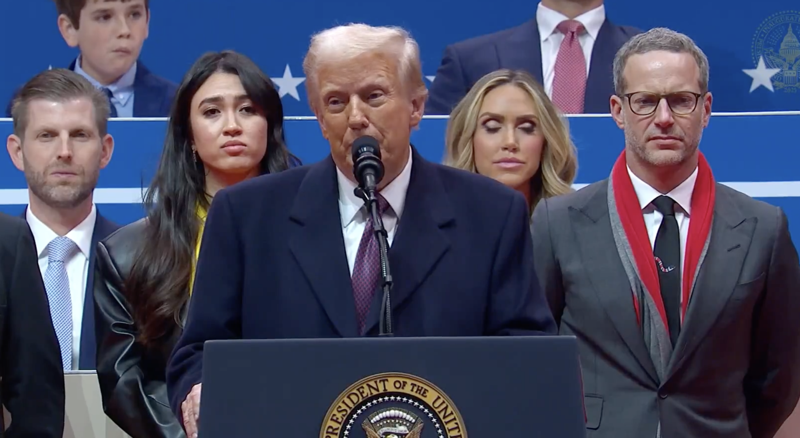President Donald Trump didn’t announce fresh tariffs as promised on his first day in office, but he hinted new taxes on imports are coming.
“Tariffs are going to make us rich as hell, it’s going to bring our countries businesses back that left us,” he said Monday evening at the Capital One Arena.
Earlier in the day, Trump used his inauguration to underscore his plans to move away from taxing Americans in favor of tariffs on imports from other countries.
“I will immediately begin the overhaul of our trade system to protect American workers and families,” the 47th president said during his earlier inauguration speech. “Instead of taxing our citizens to enrich other countries, we will tariff and tax foreign countries to enrich our citizens.”
Trump could take a slower, more deliberate process in establishing tariffs after promising for months that trade partners would be hit with significant tariffs on his first day in office. Trump plans to issue a memo Monday that directs federal agencies to examine trade policies and evaluate U.S. trade relationships with China, Mexico and Canada, according to a Wall Street Journal report.
On the campaign trail, Trump laid out significant tariff plans. He proposed baseline tariffs of 10% to 20% on all foreign imports and up to 60% on goods from China. After winning the election in November, Trump vowed to hit America’s top trading partners – Mexico and Canada – with 25% tariffs on imported goods and singled out China for an additional 10% tariff.
Trump said at the time that he plans to put the tariffs in place on his first day in office and keep them in place until problems at the northern and southern borders are fixed and China addresses its role in supplying the precursor chemicals needed to make fentanyl, a powerful opioid blamed for more than 75% of U.S. overdose deaths.
Trump’s tariffs could generate $450 billion in revenue a year, according to adviser and investor John Paulson. That estimate is in line with estimates from other groups. How much such tariffs would ultimately bring in depends on multiple factors, including how other nations respond to U.S. tariffs.
That makes it “highly uncertain,” according to credit-rating agency Moody’s.
“While such measures could raise several trillion dollars in revenue over the next decade, they could also lead to revenue losses from potential retaliatory actions from other countries and other economic losses,” Moody’s noted in a recent report. “Therefore, the net effect on future revenues and fiscal deficits from such measures is highly uncertain.”
Trump previously said he couldn’t guarantee that his tariff plans would not raise U.S. consumers’ prices.
Tariffs could increase prices for U.S. consumers and slow economic growth. S&P Global, a credit-rating agency, reported that Trump’s proposed tariffs could boost inflation by 1.8% and lower U.S. economic output by 1%, according to a post-election report.







